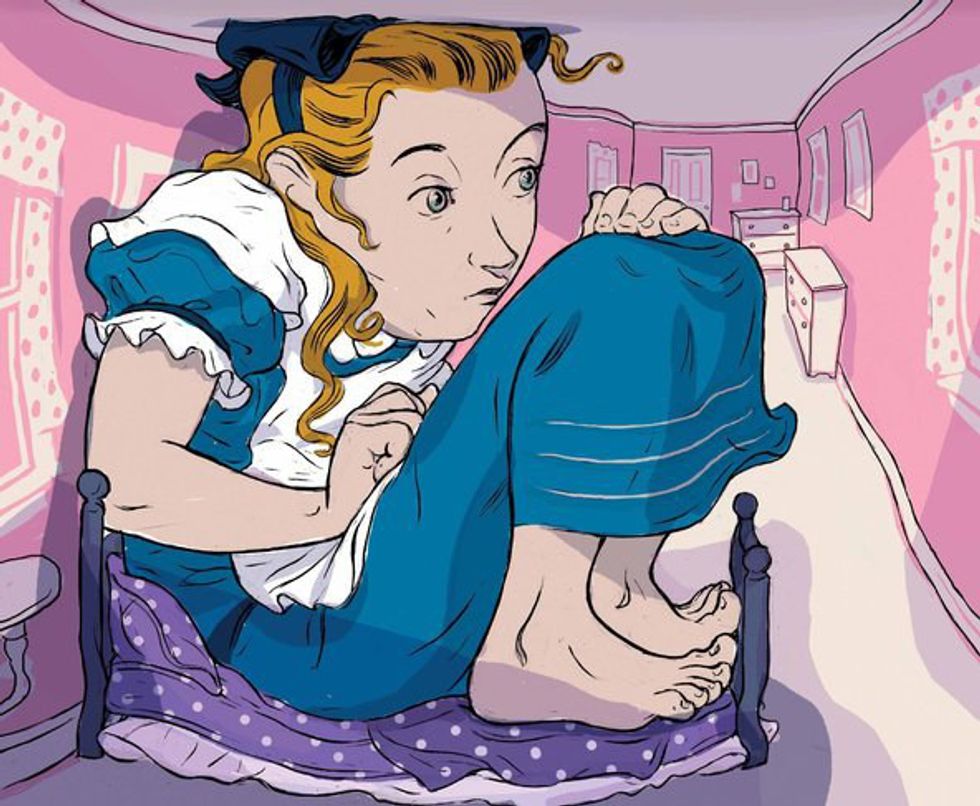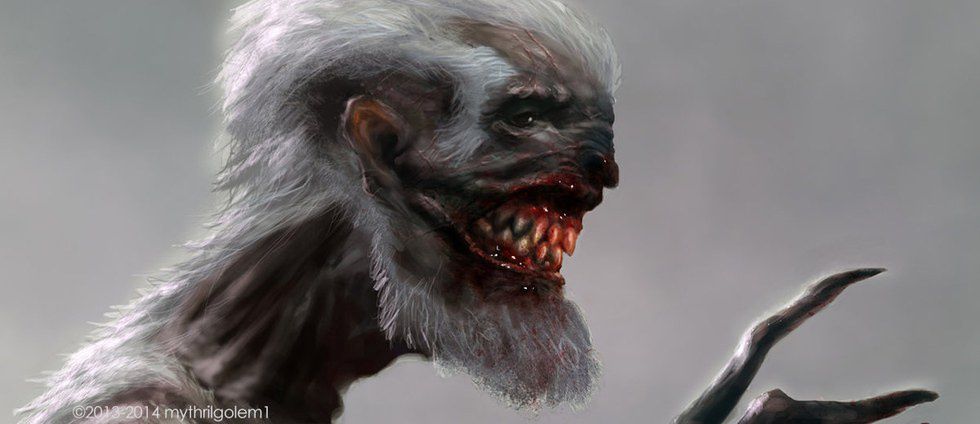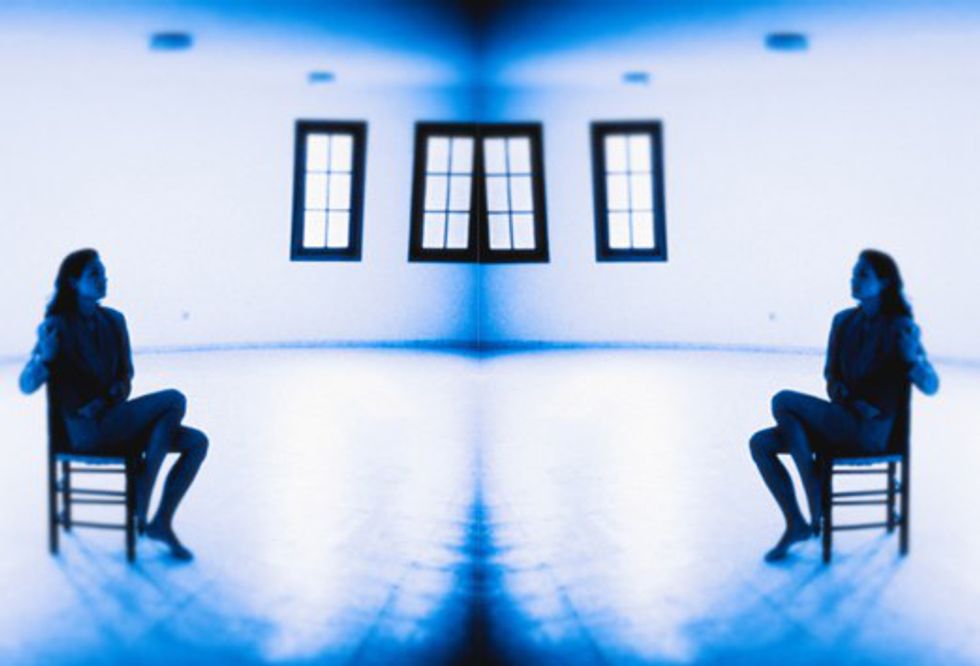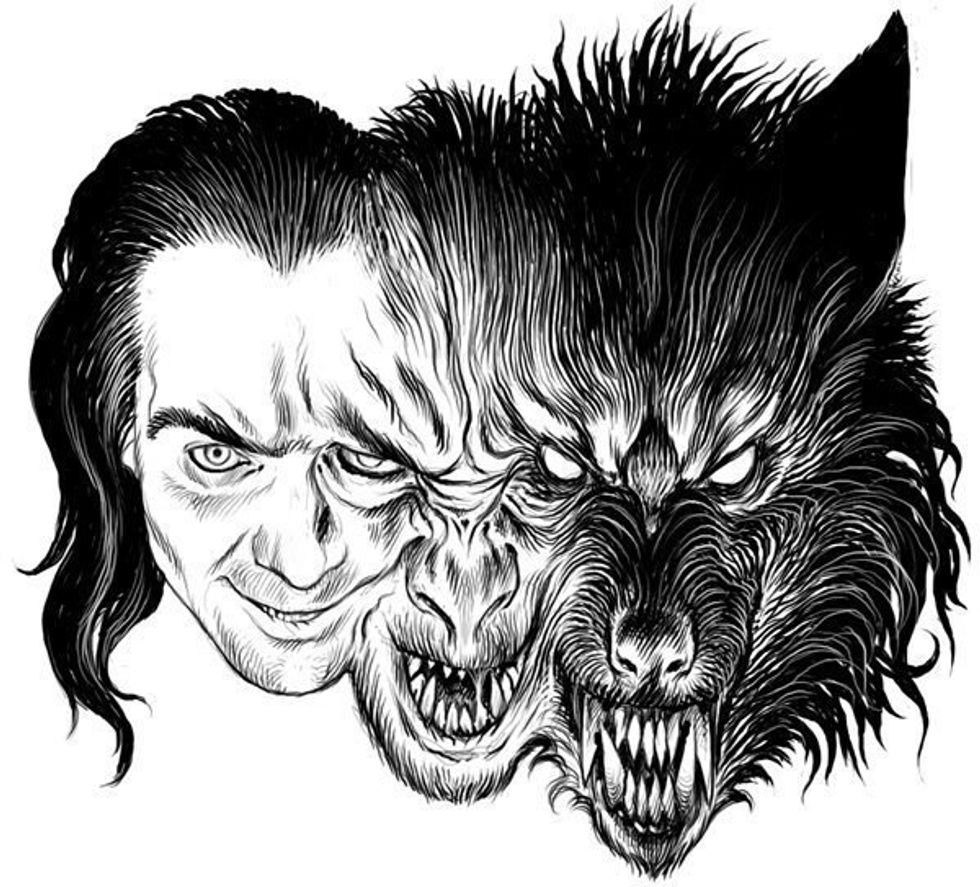1. Alice in Wonderland Syndrome
If you are suffering from this disease, it is likely to say that you are having distorted perceptions about the size and shape of your body. Symptoms include seeing objects around that are either much bigger or smaller than the person themselves. Hallways may seem much longer than they are. Doors may look too small to go through, but the doorknob may seem too large to wrap your hand around. They might also hallucinate about being in a dream world where nothing is normal. This disorder is appropriately named after the character from the famous book author, Lewis Carroll.
2. Wendigo Psychosis
This disorder is traced back to Native American cultures. Seen as being culture bound, the desire to eat human flesh, as opposed to human food, is insatiable. Witch hunts were conducted to kill these cannibalistic maniacs. Most times, these were also the mentally ill or aged members of the tribes. And the disease also tended to make an appearance in tribes where there was much stress and lack of food.
3. Reduplicative Paramnesia
There are two parts to this mind-boggling disorder. In the first part, people may have delusions that a member of their family has been replaced with impostors. These impostors have the same looks, sounds and behaviors as their family. In the second part, a person might think that a certain place or location exists in two or more places at the same exact time. RP disorder is neurological; it occurs with brain injuries caused by tumors, strokes and other conditions that affect the brain.
4. Apotemnophilia
This disorder is neurological as well as psychosexual. The idea or desire of being an amputee sexually arouses people who are diagnosed with this disorder. Outside of the desire to amputate one or more of their own healthy limbs, these people are generally sane.
5. Clinical Lycanthropy
This particular disorder can also go two different ways, depending upon the person. Many people with this mental disorder firmly believe they can turn themselves into regular wolves or werewolves. Others think they can transform into other animals outside of wolves. These beliefs are delusional, and they usually accompany altered states of the mind that are tied to psychosis. Feeling and acting like an animal and believing they can change into one is commonly reported among people with this disorder. Some have even gone as far as hiding in forest and woodland areas.





























